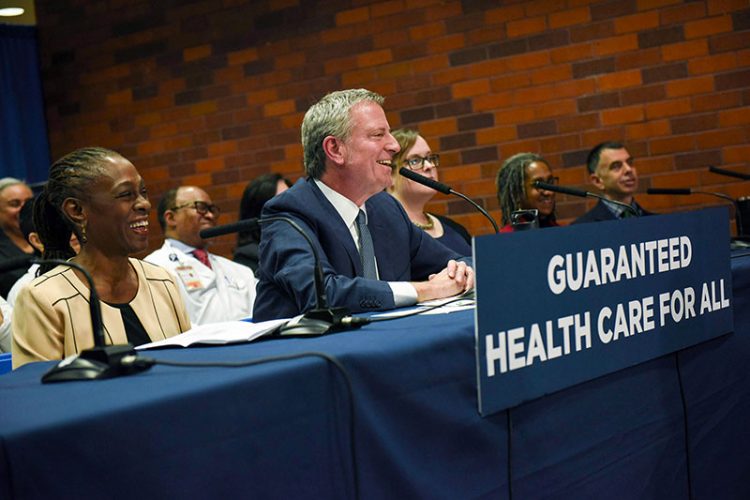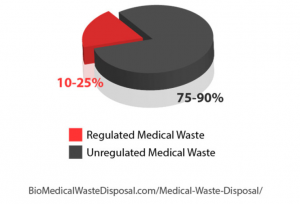New York City on January 8 announced what Mayor Bill de Blasio termed “the largest, most comprehensive plan in the nation to guarantee health care” for a city’s residents.
While a more ambitious single payer bill may be taken up by the New York State legislature this spring, and a brace of universal coverage proposals are bouncing around in Congress, de Blasio told attendees at a press conference that the city government has an obligation to act now.
Under the universal healthcare plan, about half of the 600,000 uninsured New York residents will be able to enroll in a strengthened version of New York’s public health insurance option, MetroPlus. Those who are ineligible for MetroPlus, including undocumented immigrants, will be able to access the physicians, pharmacies, and mental health and substance abuse services of NYC Health + Hospitals, the city’s public health system, which includes 11 hospitals and 70 clinics.
Enrollees in this program, known as NYC Care, will have a regular primary care physician and will also be able to see specialists, with out-of-pocket costs tied to enrollees’ incomes.
The program is scheduled to begin this summer and it is expected to be fully implemented within 2 years.
NYC Care is patterned after Healthy San Francisco, a universal coverage program that was launched in 2007. But there are important differences, noted Mitchell Katz, MD, CEO of NYC Health + Hospitals, at the news conference announcing the decision. NYC Care will offer a broader range of services and will also affect far more people than the West Coast model, said Katz, who formerly had roles in both the San Francisco program and My Health LA, a similar program in Los Angeles.

Healthy San Francisco, which doesn’t have an insurance component but uses the city’s public hospital and community clinics, serves only 20,000 people, a small fraction of the residents that NYC Care could potentially help, he noted.
About 300,000 uninsured people, de Blasio said, are eligible to enroll in health plans on the New York State insurance exchange but can’t afford the plans or have chosen not to buy coverage. Many of the latter, he noted, are “young invincibles” who think they don’t need health insurance. The city hopes to lure them into MetroPlus — available to uninsured adults who are not covered by other public programs — by making it easier for them to enroll. As for the cost, MetroPlus charges on an income-based sliding scale.
The vast majority of the other 300,000 uninsured are undocumented immigrants who are ineligible for an exchange plan or MetroPlus. A customer service system will be built to help guide them to the healthcare services they need, Katz said. As a result of NYC Hospital + Health hiring a large number of primary care physicians, he added, most NYC Care patients should be able to see a doctor within a week, or even within a day or two if necessary.


